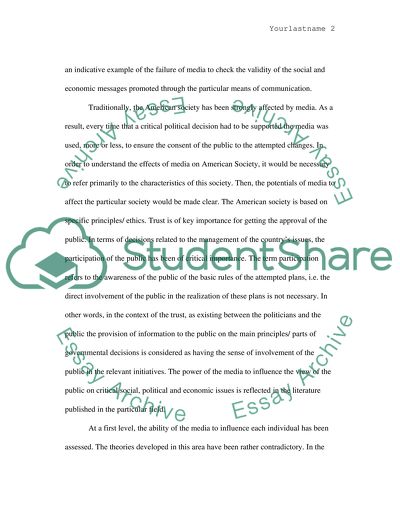Cite this document
(“The Effects The Media Has On American Society Term Paper”, n.d.)
Retrieved de https://studentshare.org/english/1390517-the-effects-the-media-has-on-american-society
Retrieved de https://studentshare.org/english/1390517-the-effects-the-media-has-on-american-society
(The Effects The Media Has On American Society Term Paper)
https://studentshare.org/english/1390517-the-effects-the-media-has-on-american-society.
https://studentshare.org/english/1390517-the-effects-the-media-has-on-american-society.
“The Effects The Media Has On American Society Term Paper”, n.d. https://studentshare.org/english/1390517-the-effects-the-media-has-on-american-society.


